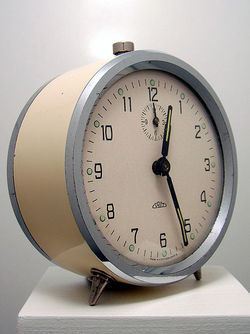



Time Management

easy first steps:
track your time and see how you are using it
figure out your priorities and then apply them to your work
cut out obvious time wasters, schedule time for important things that are getting deferred (exercise, calling your mother, going to the dentist...)
URGENT/IMPORTANT matrix
This framework is originally from The 7 Habits of Highly Effective People® by Stephen R. Covey.
| URGENCY | LESS URGENT |
IMPORTANT | Critical Activities - Do now! | Important Goals - Plan to do these next |
LESS IMPORTANT | Interruptions - Manage and minimize | Distractions - Avoid! |
In medicine, we tend to live in the urgent quadrants at expense of less urgent important tasks. If we can wean ourselves off urgency a little bit and shift our focus to the important tasks it might result in a more even pace and greater sense of command on the various task required to keep our work and personal lives in balance.
Efficiency Suggestions
doing a ’good enough’ job - "better is the enemy of good"
multi-tasking is a myth - it is not more productive - don’t multitask - focus for a defined period of time on a task with clear goals
write things down and use some sort of a scheduling aid - electronic or paper - choose something and use it
use ’to-do lists’ for all areas of your life- develop a system that works for you and use it
establish healthy routines to carry you though times of crisis
prioritize
do the most important things first, early in the day
evaluating your work list and prioritizing it and planning how to approach your work tasks are important parts of the job, don’t skip them or minimize them
organize things so you can find them (desk top, computer files, paper files...)
set deadlines/completion goals for tasks
break large tasks down into manageable steps/actionable items
give things the time they deserve, set time limits on things
just say no - go upstream and cut work off at the source
delegate/outsource if possible
touch paper only once, have a system for dealing with paper
deal with email - don’t get overwhelmed, look at it once and delete it, file it or move it to a to-do list or action file
limit your email, check it on a schedule, deal with it in a timely fashion
keeping a paper trail/email trail - of plans, decisions, and discussions
effective use of email - send a followup email to record decisions made during informal conversations
make use of small bits of time - have something with you to read/work on if you have to wait somewhere for a short period of time,
admit when you are overwhelmed
know yourself, are you an owl or a lark? don’t fight it, work with it[2]
_________________________________
 Previous
Previous